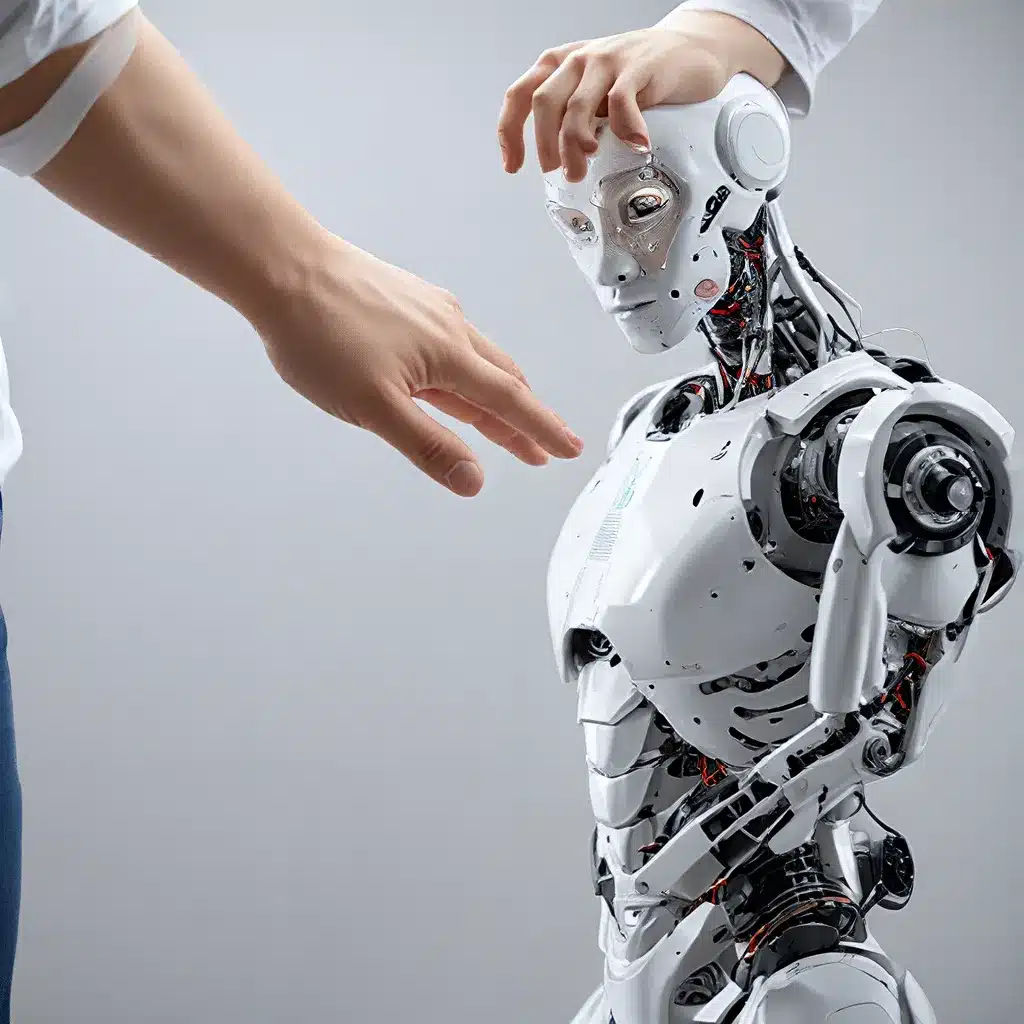
In today’s rapidly evolving digital landscape, the role of Artificial Intelligence (AI) and Machine Learning (ML) in the software industry has become an integral component that is revolutionizing traditional software development approaches. The tech industry is moving towards new horizons, and the possibilities offered by AI are limitless. Integrating AI into software development is not just a matter of technological innovation, but also a tool with immense potential to optimize business processes across various industries.
Leveraging AI and ML for Efficient Software Development
By utilizing AI algorithms, many routine and time-consuming tasks can be automated, leading to significant savings in time and resources. AI-powered computer systems can analyze data, identify inequalities or inefficiencies in operations, and even forecast future trends. This allows businesses to focus on more strategic aspects of their operations while facilitating better decision-making.
One of the most important areas where AI has a profound impact on the future of software is personalization. Advanced Machine Learning and Deep Learning technologies enable software to be tailored to individual user needs and preferences in a more accurate and intuitive manner than ever before. In today’s dynamic environment where data volumes are growing at an alarming rate, AI leverages this data analysis to recognize patterns and identify user preferences in real-time.
Machine Learning algorithms and Deep Learning neural networks can create predictive models that anticipate user behavior and deliver personalized recommendations or content. This is particularly evident in applications such as social media and streaming platforms, where AI-powered systems analyze user preferences and adapt content in real-time to enhance user engagement. Similarly, in e-commerce, AI can effectively recommend products based on user behavior analysis, directly impacting conversion rates.
Personalization supported by Artificial Intelligence is not limited to content or products but also extends to software interactions. Through image recognition and natural language processing, AI systems can better understand user intentions and adapt the software interface and functionalities to their needs. This is especially crucial in the context of personalized assistants or interactions with autonomous vehicles.
Automating Software Development with AI
In today’s technological era, AI has entered the software development arena as a key player in automating software creation processes. By leveraging Machine Learning, Deep Learning, and data analysis technologies, AI enables developers and engineers to create software in a more efficient, innovative, and market-aligned manner.
One of the most significant aspects of automation using AI is the acceleration of processes. Machine Learning algorithms, operating on vast datasets, can identify patterns in how software is created. Based on this, they can automatically generate code that is more optimized and less prone to errors. Automation transforms the software development process from manual labor to an efficient process that leverages computational power and knowledge gleaned from analyzed data.
Deep Learning and neural networks find applications in the analysis of large codebases and databases, allowing for the identification of patterns and best practices. This enables the automatic optimization of code, eliminating redundancies and improving program structure. As a result, AI-powered software development can not only save time but also improve the quality and efficiency of the final product.
Additionally, AI plays a crucial role in software testing. Machine Learning algorithms can analyze test results, identify potential issues, and generate test scenarios, accelerating the process of detecting and fixing problems. Automated testing using AI reduces the risk of defects in the final product and enhances its stability.
Ethical Considerations in AI-Powered Software
While the introduction of Artificial Intelligence (AI) to software development processes holds immense potential, it also presents several challenges and critical ethical issues that must be addressed.
One of the key challenges is the issue of responsibility for decisions made by AI-based systems. As algorithms learn from datasets, they can acquire biases and amplify existing social inequalities. This raises the question of how to ensure that AI-powered software operates fairly and does not discriminate against any group.
Another ethical aspect is the concern around privacy and data protection. AI technologies often require large amounts of data, which raises concerns about the security and appropriate use of user information. How can we ensure that data is adequately secured and utilized in accordance with user intentions?
In the context of data analysis, there is a risk of making errors and misinterpreting the results generated by AI systems. Lack of understanding about the algorithms and the way they process data can lead to incorrect conclusions and poor decision-making. This heightens the need for education and understanding of AI technology among both developers and users.
Additionally, as we introduce AI into decision-making processes, we face the question of whether we can trust machines to make critical decisions. Can algorithms consider all the aspects and contexts that humans take into account? Why was a particular decision made? These questions become increasingly important as the role of AI grows in our lives.
Conclusion
In the face of growing market demands and the dynamic nature of the software development field, Artificial Intelligence (AI) is becoming a key element transforming the way developers tackle challenges. In this article, we have explored the role of AI in tools that support the software creation process.
By introducing AI-powered tools such as GitHub Copilot and TabNine, the software development world is experiencing an acceleration in the creation process through real-time suggestions and code snippets. This allows for more efficient responsiveness to project challenges and more productive collaboration among creators.
AI-assisted tools give developers new perspectives on software development. They focus on prediction, analysis, and decision support, transforming the creation process into a more productive, innovative, and efficient stage.
The utilization of Artificial Intelligence in software development is rapidly evolving. As these tools become increasingly advanced, developers will be able to create more innovative and personalized solutions. We are facing a fascinating future where AI plays an ever-growing role in software development, supporting creators at every stage of the process.
Stay tuned with stronyinternetowe.uk to explore the latest trends and innovations in web design and development, and discover how AI and other cutting-edge technologies are shaping the future of software creation.
The Power of AI in Personalization
One of the most significant impacts of Artificial Intelligence (AI) on the future of software is its ability to enable personalization. Advanced Machine Learning and Deep Learning technologies empower software to be tailored to individual user needs and preferences in a more accurate and intuitive manner than ever before.
In today’s dynamic digital landscape, where data volumes are growing at an exponential rate, AI leverages this data analysis to recognize patterns and identify user preferences in real-time. Machine Learning algorithms and Deep Learning neural networks can create predictive models that anticipate user behavior and deliver personalized recommendations or content.
This personalization is particularly evident in applications such as social media and streaming platforms, where AI-powered systems analyze user preferences and adapt content in real-time to enhance user engagement. Similarly, in the e-commerce sector, AI can effectively recommend products based on user behavior analysis, directly impacting conversion rates.
Personalization supported by Artificial Intelligence is not limited to content or products but also extends to software interactions. Through image recognition and natural language processing, AI systems can better understand user intentions and adapt the software interface and functionalities to their needs. This is especially crucial in the context of personalized assistants or interactions with autonomous vehicles.
As technology progresses, the role of personalization enabled by AI will continue to grow. With advancements in AI and the increasing availability of data, the ability to accurately predict and adapt to our preferences will improve, enhancing our interactions with technology and providing businesses with the opportunity to offer more personalized and valuable products and services.
Automating Software Development with AI
In today’s rapidly evolving technological landscape, Artificial Intelligence (AI) has emerged as a key player in automating the software development process. By leveraging Machine Learning, Deep Learning, and data analysis technologies, AI enables developers and engineers to create software in a more efficient, innovative, and market-aligned manner.
One of the most significant aspects of automation using AI is the acceleration of processes. Machine Learning algorithms, operating on vast datasets, can identify patterns in how software is created. Based on this, they can automatically generate code that is more optimized and less prone to errors. Automation transforms the software development process from manual labor to an efficient process that leverages computational power and knowledge gleaned from analyzed data.
Deep Learning and neural networks find applications in the analysis of large codebases and databases, allowing for the identification of patterns and best practices. This enables the automatic optimization of code, eliminating redundancies and improving program structure. As a result, AI-powered software development can not only save time but also improve the quality and efficiency of the final product.
Furthermore, AI plays a crucial role in software testing. Machine Learning algorithms can analyze test results, identify potential issues, and generate test scenarios, accelerating the process of detecting and fixing problems. Automated testing using AI reduces the risk of defects in the final product and enhances its stability.
The integration of AI into software development processes offers a wealth of benefits, including increased productivity, reduced risk, and the creation of innovative solutions. As the capabilities of AI and Machine Learning continue to advance, developers can expect even more sophisticated and personalized tools that will contribute to their competitive edge and the overall innovativeness of their software projects.
Ethical Considerations in AI-Powered Software
While the introduction of Artificial Intelligence (AI) to software development processes holds immense potential, it also presents several challenges and critical ethical issues that must be addressed.
One of the key challenges is the issue of responsibility for decisions made by AI-based systems. As algorithms learn from datasets, they can acquire biases and amplify existing social inequalities. This raises the question of how to ensure that AI-powered software operates fairly and does not discriminate against any group.
Another ethical aspect is the concern around privacy and data protection. AI technologies often require large amounts of data, which raises concerns about the security and appropriate use of user information. How can we ensure that data is adequately secured and utilized in accordance with user intentions?
In the context of data analysis, there is a risk of making errors and misinterpreting the results generated by AI systems. Lack of understanding about the algorithms and the way they process data can lead to incorrect conclusions and poor decision-making. This heightens the need for education and understanding of AI technology among both developers and users.
Additionally, as we introduce AI into decision-making processes, we face the question of whether we can trust machines to make critical decisions. Can algorithms consider all the aspects and contexts that humans take into account? Why was a particular decision made? These questions become increasingly important as the role of AI grows in our lives.
To address these ethical concerns, it is crucial for software development teams to incorporate robust privacy and security measures, ensure algorithmic transparency, and foster a culture of responsible AI implementation. By addressing these issues proactively, the software industry can harness the power of AI while upholding ethical principles and maintaining user trust.
Conclusion: The Future of AI in Software Development
In the face of growing market demands and the dynamic nature of the software development field, Artificial Intelligence (AI) is becoming a key element transforming the way developers tackle challenges. The integration of AI-powered tools into the software creation process is revolutionizing the industry, enabling more efficient, innovative, and personalized solutions.
By introducing tools like GitHub Copilot and TabNine, the software development world is experiencing an acceleration in the creation process through real-time suggestions and code snippets. This allows for more efficient responsiveness to project challenges and more productive collaboration among creators.
AI-assisted tools are providing developers with new perspectives on software development, focusing on prediction, analysis, and decision support. This transforms the creation process into a more productive, innovative, and efficient stage, enabling developers to craft more cutting-edge and personalized solutions.
As the capabilities of AI and Machine Learning continue to advance, the role of AI in software development will only grow more prominent. Developers can expect to have access to even more sophisticated and customizable tools that will contribute to their competitive edge and drive innovation in the industry.
Stay connected with stronyinternetowe.uk to explore the latest trends, technologies, and best practices in web design and development, and discover how AI and other innovative solutions are shaping the future of software creation.




